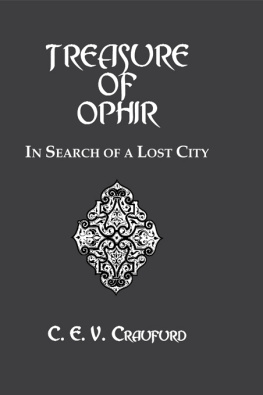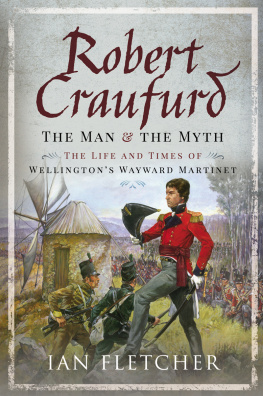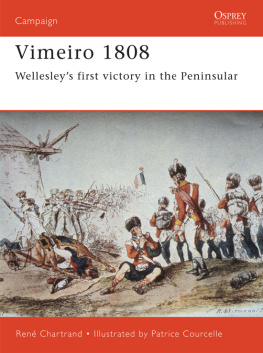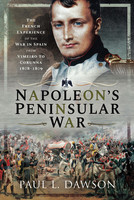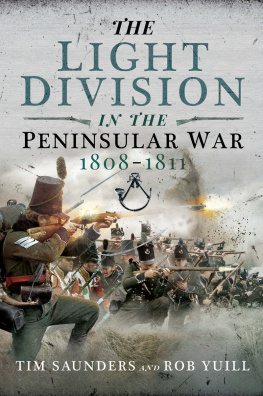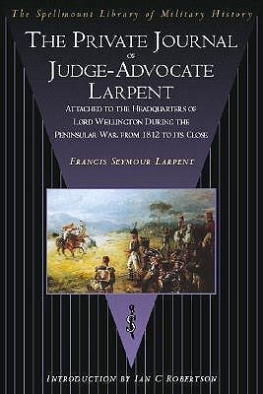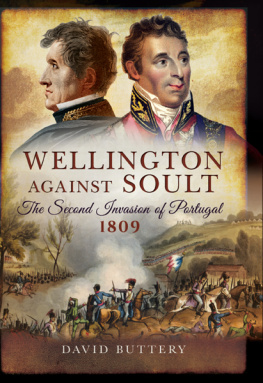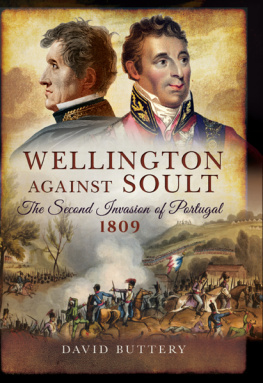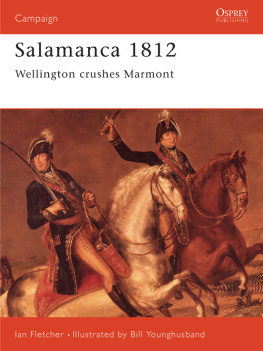
HORSBURGH.
EDINBURGH.
MAJOR - GENERAL ROBERT CRAUFURD,
Leader of the Light Division.
GENERAL CRAUFURD
AND HIS
LIGHT DIVISION
WITH MANY ANECDOTES, A PAPER AND LETTERS BY
SIR JOHN MOORE, AND ALSO LETTERS FROM THE
RIGHT HON. W. WINDHAM, THE DUKE OF WELLINGTON,
LORD LONDONDERRY, AND OTHERS
BY THE REV.
ALEXANDER H. CRAUFURD, M.A.
FORMERLY EXHIBITIONER OF ORIEL COLLEGE, OXFORD
WITH A PORTRAIT
This edition is published by PICKLE PARTNERS PUBLISHING
Text originally published in 1891 under the same title.
Pickle Partners Publishing 2011, all rights reserved. No part of this publication may be reproduced, stored in a retrieval system or transmitted by any means, electrical, mechanical or otherwise without the written permission of the copyright holder.
Publishers Note
Although in most cases we have retained the Authors original spelling and grammar to authentically reproduce the work of the Author and the original intent of such material, some additional notes and clarifications have been added for the modern readers benefit.
TO
THE OFFICERS, NON-COMMISSIONED OFFICERS,
AND PRIVATES
OF THE
43RD LIGHT INFANTRY (1ST OXFORDSHIRE LIGHT INFANTRY),
FORMERLY THE SENIOR REGIMENT OF THE GLORIOUS
LIGHT DIVISION,
THIS VOLUME,
WHICH CONTAINS SO MUCH CONCERNING
THE GREAT DEEDS OF THEIR MILITARY ANCESTORS,
IS DEDICATED,
AS A TOKEN OF SINCERE REGARD AND AFFECTION,
BY THEIR OLD COMPANION AND FRIEND,
THE AUTHOR.
"While memorials of the war in the Peninsula exist, the name of Robert Craufurd will be for ever identified with this noble body of troops," i.e. the 43rd, the 52nd, and the 95th Rifles.COLE'S Memoirs of British Generals Distinguished during the Peninsular War, vol. i. p. 238.
PREFACE.
THERE are two passages in English military literature which make one marvel that nothing approaching to a real memoir of General Robert Craufurd has ever been written; the one is in the Duke of Wellington's Despatches, and the other in the "Early Military Life of Sir George Napier." Writing to Craufurd on April 9, 1810, Wellington says to him, "Since you have joined the army, I have always wished that you should command our outposts, for many reasons into which it is unnecessary to enter." Sir George Napier says of his old leader, Robert Craufurd, "Although he was a most unpopular man, every officer of the Light Division must acknowledge that, by his unwearied and active exertions of mind and body, that Division was brought to a state of discipline and knowledge of the duties of light troops, which never was equalled by any Division in the British army, or surpassed by any Division of the French army."
In some ways it may seem unsuitable that a civilian should write concerning so great a military leader and so glorious a Division. But, unfortunately, no soldier has directed his attention to the work here undertaken; and being General Craufurd's grandson and present representative, I have at all events a strong hereditary interest in the subject, and I have also the advantage of an intimate acquaintance with letters and papers relating to the General's private as well as his public life. It is very likely that this volume may contain some technical errors or inaccuracies; but these can easily be corrected, if the book should attain to a second edition. Of course, whilst writing this work, I have very frequently consulted military friends when I was in doubt as to the technical expressions used in war. And the fact that in my former writings I have been accustomed to deal with far deeper problems, demanding the most precise and accurate thinking, may possibly be of some use to me in this work that I have now endeavoured to perform.
This volume, however, is intended to be essentially light reading. One of my main objects has been to gather together into a compact and portable form the many interesting and amusing anecdotes about the Light Division, which are at present scattered through a considerable number of scarce and inaccessible books. Thus to preserve and render easily accessible to the public all these famous stories, has appeared to me nothing less than a duty owing to the most glorious of all British Divisions, and to its renowned leader.
The letters and the long paper by Sir John Moore have never hitherto been published, so far as I know. I have a very large collection of Wellington's autograph letters to Craufurd. Unfortunately, these have been published in Gurwood's edition of the Duke's Despatches. But many of them are so interesting that I have freely used them to illustrate my subject, quoting from the original letters in my own possession. The letter from Wellington, which is marked private, is now made public for the first time, to the best of my knowledge. Of course the reasons for keeping it private have long since passed away.
Though I am quite aware of the necessary imperfection of my knowledge of military technicalities, it will be observed that I speak with perfect assurance and confidence when my subject leads me to deal with the ways, thoughts, and feelings of private soldiers. For many years I have been in the habit of giving voluntary assistance to army chaplains, or acting chaplains, in their work, during a great portion of each year. For five successive wintersperiods of about six months eachI believe that I passed almost more time with the men in hospital in Shorncliffe camp than any other minister of any denomination. During the greater part of four summers I have helped the chaplain to look after the men belonging to three different cavalry regiments at Piershill barracks, near Edinburgh. Besides my five winters passed in helping at Shorncliffe, I have also spent three winters in helping the acting chaplain at Parkhurst barracks, in the Isle of Wight. During the first part of this time the 43 rd Light Infantry were at Parkhurst, and during the later part another regiment representative of the old Light Division was there, viz. the 4th Battalion of the Rifle Brigade.
Ever since the 43rd Light Infantry came home from India, I have been accustomed to help to look after the men of that regiment with peculiar regard and affection. I am an honorary member for life of its officers' Mess, and I am accustomed to talk to its men in the most outspoken and familiar manner. This book is written from the point of view of one who sympathizes fully as much with what are called "common soldiers," as he does with British officers. I always feel keen interest in the men. Their frankness, and, in many cases, the warmth of their feelings always draw me towards them. And when I am with them I feel that I am in contact with the realities of life, and not with its conventionalities, with human nature as it truly exists, and not with unmeaning artificialities.
I have also found that my decidedly "broad" views on religion have caused me to come into far closer contact with the hearts and minds of the men than most ministers ever come. A well-known dignitary of the Church of England once said to me: "Your work amongst soldiers always interests me, as bringing into contact natures in many respects singularly different, yet singularly near in some ways." What the Dean meant was this, that the men have no cut-and-dry religious formulas, because they seldom think on such subjects, and that I have no such formulas, because deep and prolonged thought has deprived me of them. And so, from widely different causes, the men and I are alike, naked and not ashamed "in a spiritual sense. I firmly believe that the sympathetic and compassionate Christianity of Christ is admirably suited to meet the real wants of soldiers and of thinkers; but the narrower forms of religion are, as a matter of fact, about equally repulsive to both these totally different classes of human beings. {1}


